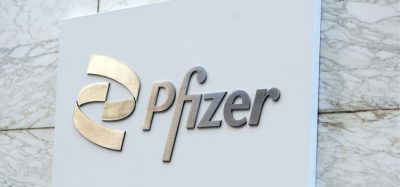Pfizer acquires Metsera and its GLP-1 candidates in new $4.9bn obesity play
Posted: 23 September 2025 | Dominic Tyer (European Pharmaceutical Review) | No comments yet
The deal with the US biopharma adds a portfolio of clinical-stage incretin and amylin research programmes to its pipeline.


Pfizer has reinvigorated its ambition of competing with Novo Nordisk and Lilly in the lucrative obesity market, striking a $4.9 billion deal to acquire Metsera.
Just three years old, the biopharma company brings a portfolio of clinical-stage incretin and amylin research programmes, including a phase II weekly and monthly injectable GLP-1 drug.
Albert Bourla, Chairman and Chief Executive Officer at Pfizer, said: “Obesity is a large and growing space with over 200 health conditions associated with it. The proposed acquisition of Metsera aligns with our focus on directing our investments to the most impactful opportunities and propels Pfizer into this key therapeutic area.”
Pfizer has previously struggled to gain traction with its efforts to build an obesity pipeline, with several research programmes of oral glucagon-like peptide-1 (GLP-1) receptor agonist proving unsuccessful. Two of these, danuglipron and PF-06954522, were discontinued this year and a third, lotiglipron, was scrapped in 2023.
Now the company’s eyes are on the “potential best-in-class injectables” contained within the portfolio of New York-headquartered Metsera.
Chief among these is its phase II weekly and monthly injectable GLP-1 receptor agonist MET-097i, which is being evaluated as both a monotherapy and in combination with Metsera’s monthly, ultra-long acting GLP-1 receptor agonist MET-233i.
The biopharma is also studying MET-233i in phase I trials as a monotherapy and it has a further two oral GLP-1 RA candidates that are expected to begin clinical trials soon.
Whit Bernard, Co-Founder and Chief Executive Officer of Metsera, said: “Since our founding in 2022, Metsera has worked tirelessly to reduce the physical, emotional, and economic burdens of obesity.
“Our team has invented and developed multiple injectable and oral candidate medicines and a category-leading peptide engineering platform, which together promise class-leading performance in a major sector of population health.”
Pfizer’s deal to acquire Metsera has the approval of both companies’ Boards of Directors and values the biopharma at $4.9 billion. Further payments are tied to the MET-097i and MET-233i combination moving into phase III trials, US regulatory approval for MET-097i as a monotherapy, and for the MET-097i and MET-233i combination gaining a US licence.
Subject to gaining approval from Metsera’s shareholders, the agreement is expected to be finalised before the end of this year.
At that point it will restart Pfizer’s ambitions in obesity, a therapy area predicted to hit peak-year sales of $170 billion by analysts at GlobalData, making it one of the largest potential markets in biopharma’s history.
The rapid growth of the sector has already propelled Novo Nordisk, which markets Ozempic/Wegovy (semaglutide), and Lilly, with Mounjaro/Zepbound (tirzepatide), to new heights thanks to the success of those GLP-1 drugs.
Lilly’s revenue in the first half of this year jumped 41 percent to $28.3 billion and Novo saw a 16 percent rise to DKK 154,944 million (around $24.5 billion), though the latter’s path this year has not been without its problems.
Related topics
Related organisations
Related drugs
MET-097i, MET-233i, Mounjaro (tirzepatide), Ozempic (semaglutide), Wegovy (semaglutide), Zepbound (tirzepatide)








